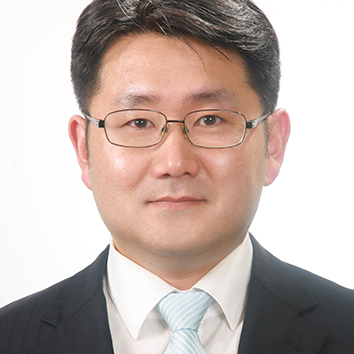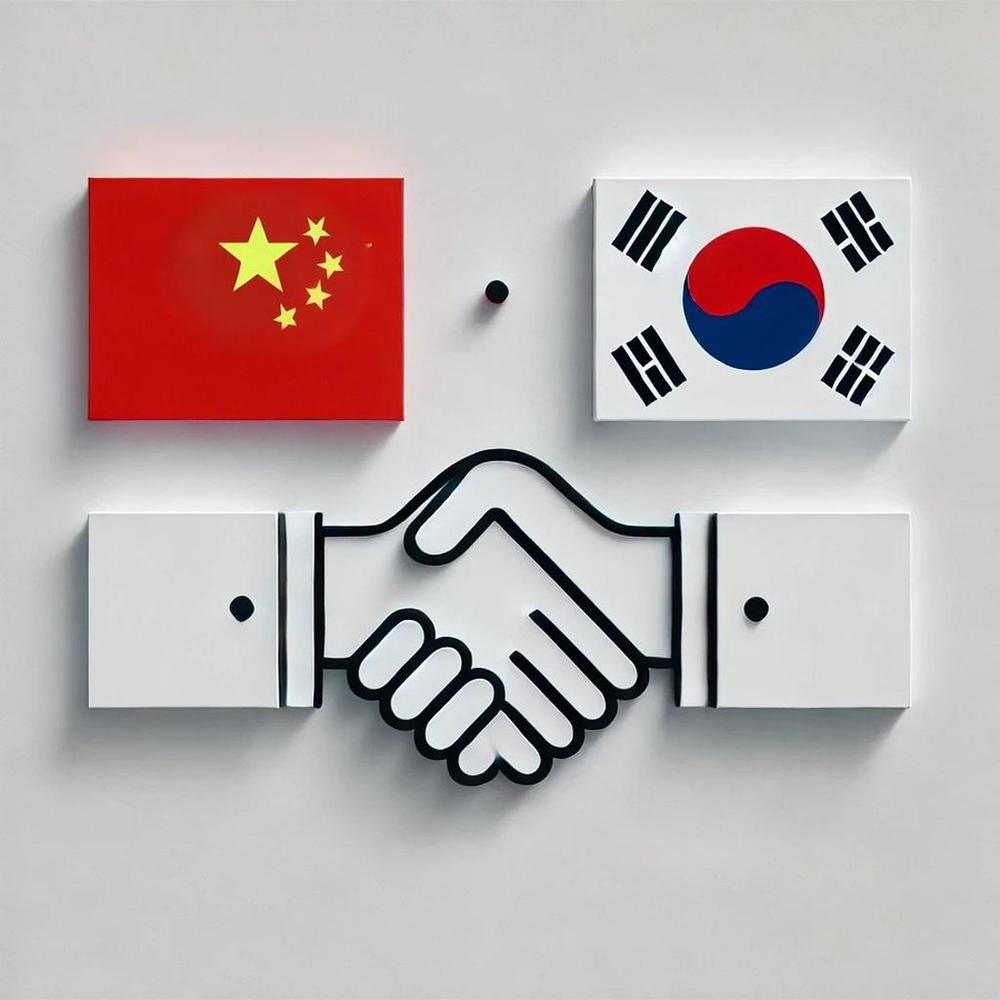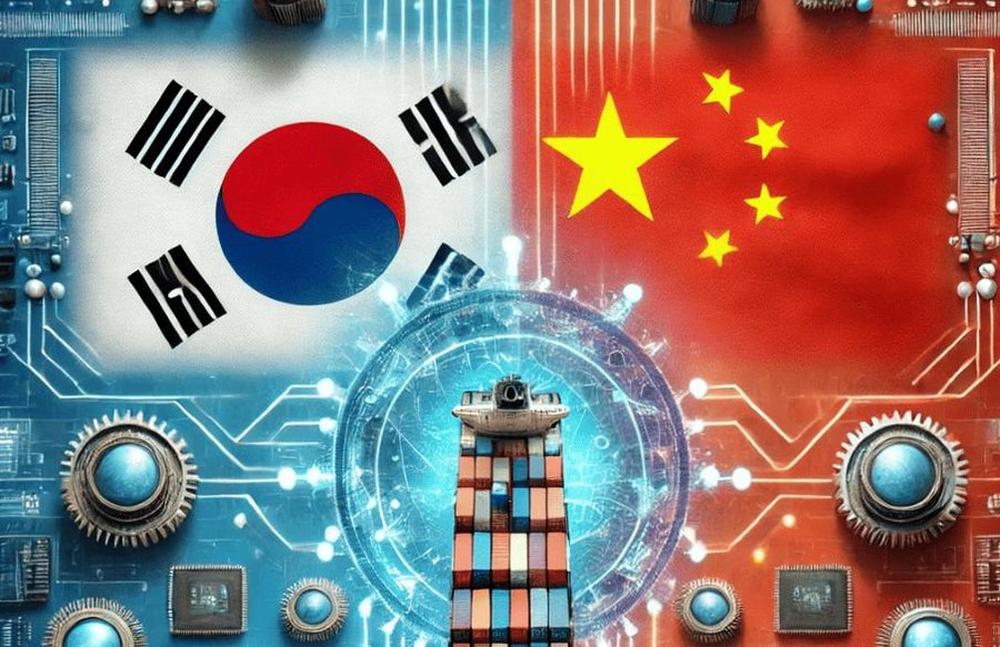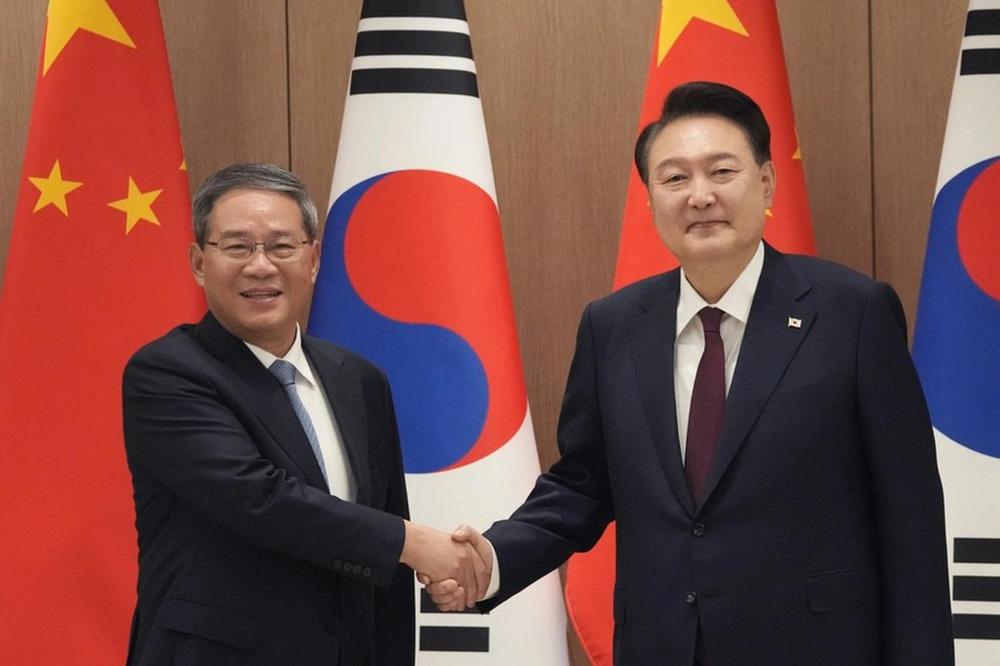
- #China
- #Global Issues
- #South Korea
- #US Foreign Policy

► With a recent shift in China’s approach to South Korea, South Korea-China relations seem to be on the mend, although conflict issues in bilateral relations, such as the South Korea-U.S.-Japan security cooperation, and the Taiwan issue, remain unresolved.
► China seeks additional goals through this rapprochement, including economic recovery, weakening the anti-China coalition, and exerting pressure on North Korea.
► South Korea should carefully consider what it should pursue and achieve through reconciliation with China, not only at the bilateral level but also in various issues such as North Korea’s denuclearization, the North Korea-China-Russia alignment, and China’s economic coercion.
Recent South Korea-China relations seem to be on the mend. Key signs of progress include the ROK-China-Japan Trilateral Summit in May; the ROK-China 2+2 Diplomatic Security Dialogue in June; the South Korea-China Forum on Friendship and Future in October; China’s visa-exemption policy for South Koreans and the South Korea-China summit in November. However, long-standing issues that have strained their relationship remain unresolved. For example, tensions over Taiwan have surfaced several times this year. These include the screening of a recorded message by Taiwan's Minister of Digital Affairs, Audrey Tang, at the Summit for Democracy in Seoul in March 2024 and the attendance of a South Korean parliamentary delegation at the inauguration of Taiwan’s new President, Lai Ching-te, in May. Furthermore, the strengthening of ROK-U.S.-Japan security cooperation, such as the trilateral military exercise “Freedom Edge,” has likely fuelled China’s concerns, which views such developments as an emergence of “Asian NATO.” Against this backdrop, the recent recovery in South Korea-China relations suggests a shift in China’s approach to South Korea for the following reasons:
1. Securing Momentum for Economic Recovery
Pressure on China’s economy has intensified as the United States keeps China in check in high-tech industry and pushes for its exclusion from global supply chains. At the end of 2022, China abandoned its “zero-COVID” policy and reopened to boost recovery. However, challenges such as a declining population, Western containment efforts led by the United States, a real estate crisis, and Xi Jinping’s centralized leadership have given rise to the “Peak China” theory—arguing that China’s rise has peaked and is now entering a phase of decline. Despite launching an extensive economic stimulus package after the Third Plenary Session of the 20th Central Committee of the Chinese Communist Party in July 2024, the results have fallen short of government expectations.
Meanwhile, the second Trump administration is expected to ramp up pressure on China with measures such as high tariffs. In this context, restoring relations with an advanced economy like South Korea could support China’s efforts to regain economic recovery momentum. China is likely to oppose U.S. protectionism and promote economic exchanges and cooperation within frameworks such as the South Korea-China Free Trade Agreement (FTA) and the Regional Comprehensive Economic Partnership (RCEP). Expanding economic cooperation with South Korea could provide China with a strategic alternative to counter U.S. pressure on removing China from global supply chains, especially as economic security becomes increasingly critical.
2. Exploiting Fissures within the U.S.-Led Anti-China Coalition
China has consistently criticized ROK-U.S.-Japan trilateral security cooperation as a military alliance. While the three countries argue that strengthening their security cooperation aims to counter North Korea’s growing nuclear threats, China fears it could evolve into an “Asian NATO” driven by the United States to contain China. In response, China has sought to mend relations with South Korea and Japan since the August 2023 Camp David Summit to slow the progress of trilateral security cooperation. These efforts include lifting the ban on group tours to South Korea and Japan in August 2023, the ROK-China-Japan trilateral foreign ministers’ meeting in November 2023, the South Korea-China-Japan Trilateral Summit in May 2024, the South Korea-China 2+2 diplomatic and security Dialogue in June 2024, and the China-Japan strategic dialogue between vice foreign ministers in July 2024.
Ahead of the November 2024 U.S. presidential election, concerns and distrust about the next U.S. administration had begun to surface in South Korea. This stemmed from conflicts during Trump’s first term, such as defense cost-sharing issues. With Donald Trump’s re-election, the likelihood of strained ROK-U.S. relations has grown, particularly over defense burden-sharing, North Korea’s nuclear threat, and debates about South Korea's potential to pursue indigenous nuclear armament. Despite growing anti-China sentiment in South Korea, there remains a belief in the importance of economic cooperation with China for economic recovery. If disagreements and conflicts arise between South Korea and the United States during Trump’s second term, they could fuel domestic dissatisfaction with the Yoon Suk-yeol administration, which has prioritized the ROK-U.S. alliance and value-based diplomacy. This dissatisfaction, coupled with the administration’s low approval ratings, risks weakening South Korea’s ability to advance its foreign policy. It could also lead to South Korea’s passive participation in ROK-U.S.-Japan security cooperation, South Korea-NATO cooperation, and initiatives like the IP4 (Indo-Pacific Four: South Korea, Japan, Australia, and New Zealand), potentially slowing the pace of cooperation within the U.S.-led anti-China coalition.
3. Sending a Message that China is Distancing Itself from North Korea
The deeper North Korea-Russia military ties grow, the more strained North Korea-China relations appear. Kim Jong Un has frequently stated that the structure of international relations has shifted into a new Cold War framework. North Korea is attempting to escape diplomatic isolation and secure military and economic support by strengthening its ties with China and Russia. North Korea’s closer military ties with Russia can be interpreted as an attempt to create a regional Cold War dynamic and rope China into it. Tensions on the Korean Peninsula are rising, with North Korea launching trash balloons and South Korea broadcasting anti-North Korea propaganda via loudspeakers. If North Korea conducts an ICBM launch or a nuclear weapons test, the issue of China’s responsibility could resurface. If China maintains friendly ties with North Korea, it could tarnish China’s reputation in the international community. Pyongyang’s military provocations and its growing alignment with Russia are destabilizing the region. This instability may also limit China’s economic exchanges with neighboring countries like South Korea and Japan. China is increasingly dissatisfied with North Korea’s recent actions. Signs of this dissatisfaction include China’s removal of the footprint plaque of Xi Jinping and Kim Jong Un in Dalian, the absence of Chinese Ambassador Wang Yajun from North Korea’s Victory Day celebrations on July 27, and demands for the return of Chinese laborers from North Korea. By mending its relationship with South Korea, China may signal to North Korea and the International community that it does not fully support North Korea’s stance on inter-Korea issues and that it is distancing itself from Pyongyang.
With China’s rise, South Korea-China relations have become subordinate to U.S.-China relations; China frames its relationship with South Korea within the context of U.S.-China dynamics, with the 2016 THAAD controversy serving as a case in point. South Korea needs a thorough and cautious approach to sustain the current momentum toward reconciliation with China. As noted earlier, China’s efforts to improve relations with South Korea are not solely aimed at advancing bilateral ties. Like any nation prioritizing its national interests, China seeks additional goals through this rapprochement, including economic recovery, weakening the anti-China coalition, and exerting pressure on North Korea.
South Korea should also carefully consider what it should pursue and achieve through reconciliation with China, not only at the bilateral level but also in various areas such as economic growth and foreign relations. With protectionism under a potential second Trump administration likely to intensify, economic exchanges with China could contribute to South Korea’s economic recovery. At the same time, South Korea must ensure that these exchanges do not limit trade with the United States or create unnecessary misunderstandings with the United States and like-minded countries. If South Korea fails to respond appropriately to China’s policies to restore bilateral relations, it risks being framed as responsible for any lack of progress. This framing could restrict Seoul’s ability to shape its China policy in the future. The Yoon Suk-yeol administration, which has emphasized building future South Korea-China relations based on “mutual respect,” is pinning their hopes on a visit by Chinese President Xi Jinping and a potential South Korea-China summit during the APEC meeting in November 2025. China is likely aware that holding such a summit would be seen as a major diplomatic win for the Yoon administration, while its failure could deal a significant political blow. In this context, China may use the summit as leverage to demand reciprocal actions from South Korea, such as maintaining a neutral stance in U.S.-China relations or avoiding involvement in Taiwan-related issues. Amid the current reconciliatory mood, various dialogues at both government and private-sector levels are expected. South Korea should seize these opportunities to clearly communicate its positions on key issues, including North Korea’s denuclearization, the North Korea-China-Russia alignment, and China’s economic coercion, and work toward fostering mutual understanding and building consensus on these matters with China.

Dr. Dong-gyu LEE is a research fellow of the Center for Regional Studies at the Asan Institute for Policy Studies. He is also an adjunct professor of the North-East Asian Foreign Affairs and Commerce Department at the Hankuk University of Foreign Studies (HUFS). Previously, Dr. Lee was a research fellow of the Global Security Cooperation Center at the HUFS (2015.03. ~ 2020.12.). His research focuses on Chinese politics and foreign policy, South Korea-China relations, and East Asia security. Dr. Lee received his B.A. and M.A. from the HUFS, and Ph.D. in politics from Tsinghua University in China.


